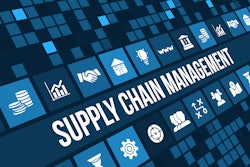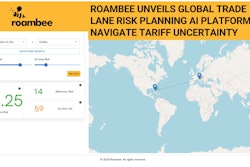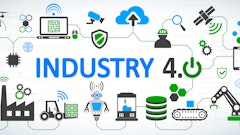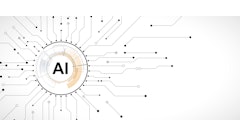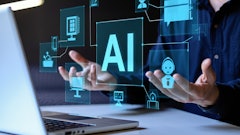
In 2025, manufacturers are accelerating their adoption of advanced technologies to streamline operations, empower their workforce, and remain competitive in an increasingly digital marketplace. KPMG estimated that 50% of supply chain organizations in 2024 invested in applications that support artificial intelligence and advanced analytics capabilities.
Artificial intelligence (AI), machine learning (ML), and automation are no longer futuristic concepts but essential tools for optimizing workflows, enhancing employee satisfaction, and meeting evolving customer demands. The next phase of digital transformation in manufacturing will be defined by how well organizations integrate these technologies across their supply chains, production lines, and workforce management strategies.
Empowering workforce satisfaction through technology
Workforce engagement has become as crucial as operational efficiency. The manufacturing sector continues to grapple with labor shortages, an aging workforce, and challenges in attracting younger talent. Since many organizations today are faced with the challenge of managing limited budgets, increasing headcount is not always the most effective solution. Instead, the focus is shifting toward optimizing existing resources rather than adding more personnel. Organizations that invest in automation to adopt smarter workflows can reduce costs while enhancing the quality of work for employees.
Digital transformation presents an opportunity to attract younger workers who are seeking careers with access to cutting-edge technology. By repositioning roles to leverage digital tools, companies can cultivate a more engaged workforce that values problem-solving and innovation over monotonous, manual labor.
Automation can also alleviate burnout by reducing the burden of repetitive, administrative tasks. AI-driven systems can manage inventory, process documents, and streamline communications, allowing employees to focus on strategic, high-value activities. For instance, manufacturers implementing AI-powered predictive maintenance have reported significant reductions in downtime and operational disruptions.
Beyond the factory floor: Automation as a competitive differentiator
Historically, automation has been synonymous with robotics and production-line efficiency. However, automation is extending beyond the factory floor and into every facet of manufacturing, from procurement and contract management to logistics and compliance.
The integration of AI and ML into back-office functions is revolutionizing data management. AI-powered analytics can structure large volumes of metadata, improving decision-making and reducing human error. Machine learning algorithms can detect inefficiencies in supply chain operations, predicting potential disruptions before they escalate into costly delays. According to a report by PwC, businesses that integrate AI into supply chain management can reduce forecasting errors by up to 50%.
Seamless platform integrations are enhancing AI-driven automation. Cloud-based systems are increasingly allowing manufacturers to synchronize real-time data across departments, improving coordination between production, inventory management, and distribution channels. This level of digital connectivity is proving to be a game-changer for manufacturers seeking to enhance agility and scalability in uncertain economic conditions.
Customer service and compliance: The new market differentiators
In the digital era, customer expectations are higher than ever, and regulatory requirements are becoming more stringent. The ability to efficiently access and leverage data will be a key determinant of market success. Organizations must refine their processes to deliver superior customer service while ensuring compliance with evolving quality and regulatory standards.
AI-powered chatbots and virtual assistants are transforming customer service in manufacturing, enabling real-time responses to inquiries and personalized support. These technologies ensure that customers receive accurate information without the delays associated with manual processes. Additionally, manufacturers are leveraging AI-driven insights to proactively address potential product defects, improving customer satisfaction and brand loyalty.
From a compliance standpoint, digital document control systems are becoming a necessity. AI can facilitate real-time tracking of compliance data, automatically flagging potential issues and ensuring that companies adhere to reporting regulations. Enhanced integration efforts will play a crucial role in fostering a secure and reliable operational ecosystem where compliance is not an afterthought but a built-in feature of daily operations.
Scaling supply chain for agility and resilience
While many manufacturers have digitized their production lines, supply chain processes have often lagged behind. In the years ahead, the ability to scale supply chain operations effectively will be a defining factor in business resilience and competitiveness.
Advanced analytics and AI-driven automation are helping organizations streamline procurement, supplier evaluation, logistics, and shipping. For example, predictive analytics can anticipate supply chain disruptions and recommend alternative suppliers or shipping routes to mitigate risks. This proactive approach reduces operational downtime and enhances overall efficiency.
AI-enhanced contract management tools are also ensuring greater transparency and accuracy in supplier agreements. Automated contract analysis can identify inconsistencies or potential compliance risks, minimizing legal and financial vulnerabilities. Organizations that invest in these digital solutions will achieve higher returns on investment through improved efficiency and stronger information governance.
The road ahead
The future of manufacturing will be shaped by the ability of organizations to integrate AI, ML, and automation across all aspects of their operations. The benefits extend beyond cost savings—these technologies are fostering a more engaged workforce, driving efficiencies, and enhancing customer experiences. Companies that prioritize digital transformation will be well-positioned to navigate workforce challenges, regulatory complexities, and supply chain disruptions while maintaining a competitive edge.
As we embrace this new era of intelligent manufacturing, organizations must focus not only on implementing technology but also on fostering a culture of adaptability and continuous improvement. The manufacturers that succeed will be those that see digital transformation not as a project with an endpoint but as an ongoing journey toward innovation and resilience.





